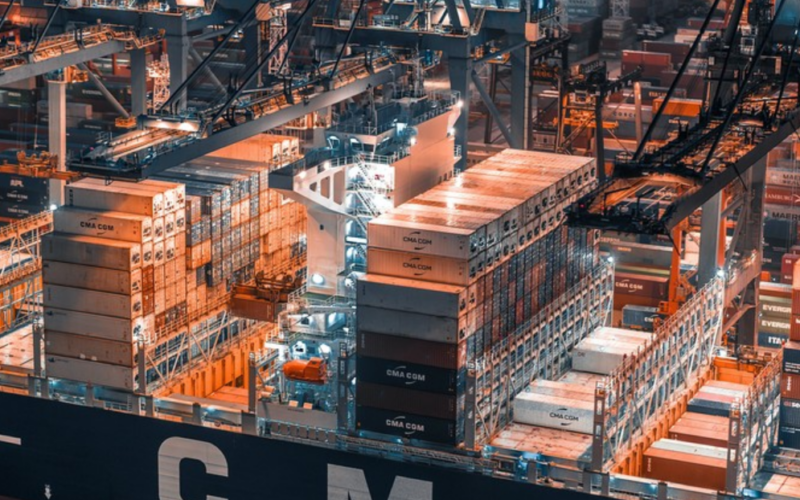Germany’s chemicals sector, a cornerstone of Europe’s industrial landscape, is facing significant challenges as the repercussions of the Red Sea crisis impact the timely delivery of crucial imports from Asia. As container shippers reroute vessels away from the Red Sea and Suez Canal due to security concerns arising from attacks by Yemen’s Houthis, disruptions in the supply chain are causing concerns across various industries, including chemicals.
Germany’s chemicals sector, known for its annual sales of approximately 260 billion euros, is Europe’s largest and constitutes a vital component of the country’s industrial infrastructure. As the industry grapples with the delayed shipments from Asia, ranging from car parts to chemicals and toys, businesses are adapting to the changing landscape. Container shippers diverting around Africa and the Red Sea have become a common response to the security threats, leading to longer transit times for crucial imports.
The supply chain disruptions are beginning to manifest in the operations of chemical companies, with some being forced to curtail production. Notable instances include Tesla’s Berlin factory, a prominent victim of the delays. Gechem GmbH & Co KG, a chemical mixing and bottling company catering to major industrial clients, has reported a significant impact on its production of dishwasher and toilet tablets. The unavailability of key chemicals like trisodium citrate, sulfamic, and citric acid due to shipping delays has compelled Gechem to reevaluate its production schedules, signaling potential challenges well into the first half of 2024.
Martina Nighswonger, CEO and owner of Gechem, highlighted the heightened efforts of the procurement department to manage the disruptions. The company is engaged in frank discussions with customers, acknowledging the constraints and adjusting delivery quantities accordingly. This illustrates the collaborative efforts required across the supply chain to ensure a fair distribution of available resources, even in the face of reduced quantities.
Evonik, a major player in the specialty chemicals sector, has also felt the impact, citing “short notice routing changes and delays.” The company is actively addressing the challenges by adopting strategies such as ordering earlier and exploring alternative transport modes like air freight, albeit with limitations due to restrictions on certain chemicals being transported by plane.
As Germany’s chemicals sector grapples with the evolving landscape, the emphasis is on adaptability and resilience. Companies are reassessing their supply chain strategies, exploring alternatives, and seeking ways to mitigate the impact of delays. The use of air freight, despite its limitations, underscores the industry’s commitment to finding temporary solutions while navigating the constraints imposed by the current geopolitical situation.
The Red Sea crisis-induced disruptions are proving to be a formidable challenge for Germany’s chemicals sector. As the industry navigates these supply chain obstacles, the resilience and adaptability demonstrated by companies become crucial factors in sustaining operations. The ongoing situation prompts a reevaluation of logistics strategies, collaborative efforts across the supply chain, and a proactive approach to mitigating challenges. As the Red Sea crisis persists, the German chemicals sector serves as a microcosm of the broader industrial landscape grappling with the complexities of global supply chain dynamics and geopolitical uncertainties.








